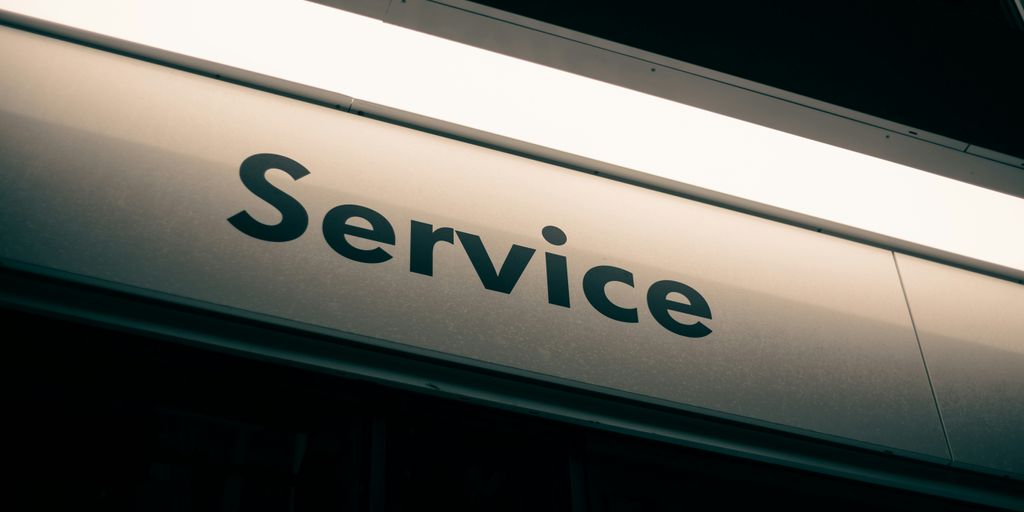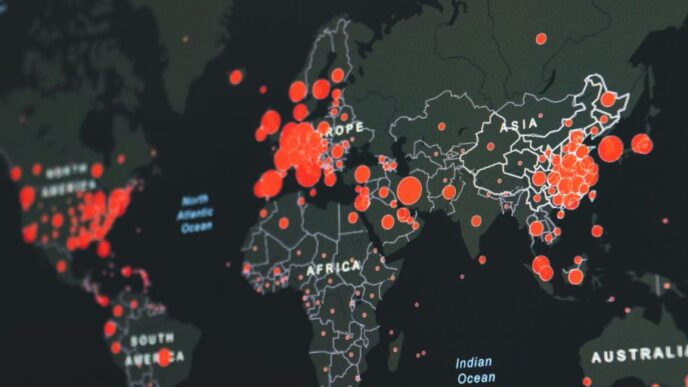The internet is a big place, and sometimes it can feel a little like the wild west. That’s why the EU stepped in with something called the EU Digital Services Act, or DSA. It’s basically a new set of rules for online services, aiming to make the digital world safer and fairer for everyone. Think of it as a major upgrade to how online platforms, from social media to marketplaces, operate. If you’re running any kind of online service that reaches users in the EU, you’ll want to pay close attention, because these rules are a big deal and they’re going to change how things work.
Key Takeaways
- The EU Digital Services Act is a new law for online services in the EU, designed to make the internet safer and fairer.
- It applies to many online businesses, like social media, online stores, and web hosting providers.
- The DSA has different rules depending on how big and influential an online service is.
- Companies need to be more open about how they handle content and report on their activities.
- Not following the DSA rules can lead to serious problems, including fines.
Understanding the EU Digital Services Act

The Digital Services Act (DSA) is a big deal for anyone doing business online in Europe. It’s designed to make the internet a safer and more accountable place. Think of it as a new set of rules for the road, but for the digital world. It’s not just about protecting users; it’s also about setting clear expectations for companies that operate online. It’s a pretty broad piece of legislation, so understanding its ins and outs is key if you want to avoid problems down the line.
Defining the Digital Services Act
So, what exactly is the Digital Services Act? It’s basically a set of EU laws that aim to regulate online platforms and services. It updates the old rules to deal with the challenges of today’s internet, like illegal content, disinformation, and the spread of harmful goods. The DSA wants to make sure that what’s illegal offline is also illegal online. It’s a pretty ambitious goal, and it’s going to change how a lot of companies do business.
Scope and Applicability
Who does the DSA apply to? Well, it’s pretty wide-ranging. It covers online intermediaries that offer services to users in the EU. That includes:
- Internet service providers
- Cloud computing services
- Social media platforms
- Online marketplaces
- Search engines
Basically, if you’re storing, transmitting, or moderating content for users in the EU, the DSA probably applies to you. There are some exceptions for small businesses, but the rules get stricter as your platform gets bigger. It’s a layered approach, so the more users you have, the more obligations you’ll face. The Digital Services Act ensures online products sold in the EU are safe and meet high standards, prioritizing user safety.
Key Objectives of the EU Digital Services Act
The DSA has a few main goals:
- Protecting users: Making sure users are safe online and have access to remedies if things go wrong.
- Promoting transparency: Forcing platforms to be more open about how they operate, especially when it comes to content moderation.
- Ensuring accountability: Holding platforms responsible for the content that’s shared on their services.
It’s all about creating a fairer and safer online environment for everyone. The DSA tries to balance freedom of expression with the need to protect users from harm. It’s a tough balancing act, but that’s what the EU is trying to achieve.
Core Obligations for Online Intermediaries

Okay, so you’re running an online service. The EU Digital Services Act (DSA) is going to change things, especially when it comes to what’s expected of you. It’s not just about avoiding fines; it’s about creating a safer and more transparent online environment. Let’s break down the core obligations for online intermediaries like us.
Transparency and Reporting Requirements
Transparency is a big deal under the DSA. You can’t just operate in the shadows anymore. Think about it: users need to know who’s behind the content they’re seeing and how decisions are being made about what stays up and what comes down. This means a few things:
- Terms and Conditions: Your terms need to be super clear and easy to understand. No more hiding important stuff in legal jargon. Spell out exactly what users can and can’t do, and how you’ll handle content moderation. It might be time for a DSA taskforce to review your current policies.
- Advertising Transparency: Ads need to be clearly marked as ads, and users need to know why they’re seeing a particular ad. Who paid for it? What targeting criteria were used? Users should have access to this information in real-time.
- Reporting Obligations: Get ready to publish regular reports on things like the number of content removal requests you receive, how you handled them, and the number of active users on your platform. This data helps regulators and the public understand how you’re managing content and user activity.
Notice and Takedown Procedures
This is where things get real. When someone reports illegal content on your platform, you need to act, and act fast. The DSA sets some pretty specific rules about how this process should work:
- Clear Reporting Mechanisms: Make it easy for users to report illegal content. The easier it is to flag something, the more likely it is that you’ll catch problems early.
- Prompt Action: You can’t sit on reports forever. You need to have a system in place to review reports quickly and take appropriate action. This might mean removing the content, suspending the user, or taking other steps to address the issue.
- User Notification: If you remove content, you need to let the user who posted it know why. Give them a chance to appeal the decision if they think you made a mistake.
Content Moderation Standards
Content moderation is no longer a Wild West situation. The DSA wants to see consistent and fair standards applied across the board. Here’s what that means for you:
- Clear Content Policies: You need to have clear rules about what kind of content is allowed on your platform and what isn’t. These policies should be publicly available and easy to find.
- Consistent Enforcement: It’s not enough to have good policies; you need to enforce them consistently. Don’t play favorites or make exceptions without a good reason. Document your decisions so you can explain why you took a particular action.
- Complaint Mechanisms: Users need a way to appeal content moderation decisions they disagree with. This could involve an internal review process or an external dispute resolution mechanism. The goal is to ensure that decisions are fair and transparent. The Digital Services Act aims to create a safer digital space.
Layered Approach to Compliance
The Digital Services Act (DSA) doesn’t treat everyone the same. It uses a layered approach, meaning the obligations on a digital service provider depend on its size and the services it offers. Think of it like a pyramid, with the most stringent rules applying to the biggest players. Let’s break down the different layers.
Obligations for Hosting Providers
These are the basic rules that apply to pretty much everyone who hosts data. If you’re storing information provided by users, you’re likely a hosting provider. The DSA requires you to have a notice-and-takedown mechanism in place. This means you need a way for people to report illegal content, and you need to act on those reports promptly. You also need to be transparent about your content moderation policies. It’s all about accountability and making sure illegal stuff doesn’t stay online for long. For example, a small web hosting company would fall into this category. They need to have a system for removing illegal content, but they don’t face the same level of scrutiny as a huge social media platform.
Requirements for Online Platforms
Online platforms, like social media sites or marketplaces, have more responsibilities than simple hosting providers. They have to implement additional measures to protect users and prevent the spread of illegal content. This includes things like:
- Know Your Business Customer (KYBC): Verifying the identity of traders using the platform. This helps prevent scams and the sale of illegal goods. You should configure your platform to help traders meet their pre-contractual information obligations, including publishing address and Chamber of Commerce information. Traders should also (be able to) provide essential product identification information, including a brand/logo, and other mandatory information such as on ingredients. You should make a best effort to ensure the accuracy of information before displaying it on the platform. Afterwards, conduct random checks.
- Complaint and Redress Mechanisms: Providing users with a way to challenge content moderation decisions. If a product/service offered is illegal, you must inform consumers who have purchased it in the past 6 months. If consumer identities are unknown, make this information public.
- Transparency Reporting: Publishing reports on content moderation activities, including the number of notices received and actions taken. This helps regulators and the public understand how the platform is addressing illegal content.
Specific Rules for Very Large Online Platforms
Very Large Online Platforms (VLOPs) – those with 45 million or more active users in the EU – face the strictest rules under the DSA. These platforms have a significant impact on society, so they need to take extra steps to mitigate risks. Some of the key obligations for VLOPs include:
- Risk Assessments: Conducting regular assessments to identify and address systemic risks, such as the spread of disinformation or the impact on electoral processes. This is part of the digital transformation agenda the EU Commission has unveiled.
- Independent Audits: Undergoing independent audits to assess compliance with the DSA.
- Data Access: Providing regulators with access to data to monitor compliance and investigate potential violations.
- Crisis Response Mechanism: Implementing measures to address exceptional circumstances, such as public health emergencies or security threats.
Basically, the bigger you are, the more you have to do. It’s all about making the online world safer and more accountable, especially for the platforms that have the most influence.
Navigating Compliance Challenges
Compliance with the Digital Services Act (DSA) isn’t always straightforward. There are definitely some tricky parts where the rules aren’t super clear, and sometimes, the DSA might even seem to clash with other laws. Plus, getting ready for all the new things the DSA requires can be a real headache. Let’s break down some of the biggest hurdles.
Identifying Grey Areas and Conflicts
Figuring out exactly what the DSA means for your specific situation can be tough. The law uses broad language, and some terms are open to interpretation. This can lead to uncertainty, especially when deciding if certain content moderation practices are acceptable or if your platform qualifies as a Very Large Online Platform (VLOP). It’s also possible that the DSA’s requirements might overlap or even conflict with existing regulations, like data privacy laws or sector-specific rules. For example, you might need to balance the DSA’s transparency requirements with GDPR’s data minimization principles. Staying updated with tech news is crucial to understanding these evolving interpretations.
Aligning with Existing Regulatory Frameworks
The DSA doesn’t exist in a vacuum. It interacts with a whole bunch of other laws, both at the EU level and in individual member states. Making sure you’re not accidentally breaking another law while trying to comply with the DSA is a big challenge. Here’s what you need to consider:
- Data Protection (GDPR): How do you balance transparency obligations under the DSA with the need to protect user data under GDPR? For example, disclosing information about content moderation decisions might require careful anonymization to avoid revealing personal data.
- E-commerce Directive: The DSA updates some aspects of the E-commerce Directive, but not all of it. You need to understand which parts still apply and how they interact with the new DSA rules.
- National Laws: Member states might have their own laws related to online content and platform liability. You need to be aware of these national variations and how they might affect your compliance strategy. It’s important to build AI expertise within your team to navigate these complexities.
Preparing for New Compliance Obligations
The DSA introduces a bunch of new things that digital service providers need to do. Getting ready for these changes takes time, effort, and resources. Here’s a checklist of things you’ll likely need to tackle:
- Risk Assessments: Conduct thorough risk assessments to identify potential systemic risks on your platform, as required by the DSA. This includes assessing the risks related to illegal content, disinformation, and manipulation.
- Transparency Reports: Prepare to publish regular transparency reports detailing your content moderation practices, the number of notices received, and the actions taken in response. These reports need to be clear, accurate, and easy to understand.
- Internal Policies: Update your internal policies and procedures to align with the DSA’s requirements. This includes policies related to content moderation, user complaints, and cooperation with authorities. Consider implementing training programs for your employees to ensure they understand the new policies.
- Contact Points: Designate a point of contact for users and authorities to communicate with you about DSA-related issues. This contact point needs to be easily accessible and responsive.
- Audits: Be prepared for independent audits to assess your compliance with the DSA. These audits will likely be conducted by qualified organizations and will involve a thorough review of your systems and processes. Staying informed about regulatory sandboxes can help you prepare for these audits.
Enforcement and Penalties Under the EU Digital Services Act
So, you’re probably wondering what happens if you don’t play by the rules of the Digital Services Act (DSA). Well, it’s not pretty. The EU is serious about this, and they’ve put some teeth into the enforcement mechanisms. Let’s break it down.
Role of Digital Services Coordinators
Each EU member state will have its own Digital Services Coordinator (DSC). Think of them as the local police for the internet. These DSCs are the primary point of contact for overseeing and enforcing the DSA at the national level. They’ll be responsible for things like investigating complaints, conducting audits, and working with other DSCs across the EU. They also work with content moderation standards to ensure compliance.
European Commission Oversight
While the DSCs handle the day-to-day stuff, the European Commission is the big boss. They have the power to step in and directly enforce the DSA, especially when it comes to Very Large Online Platforms (VLOPs) and Very Large Online Search Engines (VLOSEs). The Commission can launch investigations, demand information, and even impose sanctions. It’s like having a federal agency watching over the state cops – a second layer of oversight to make sure everyone’s following the rules. The European Commission has already issued fines to major tech companies, showing they’re serious.
Consequences of Non-Compliance
Okay, let’s talk about the penalties. This is where things get real. If you violate the DSA, you could be facing some serious financial consequences. Here’s a quick rundown:
- Fines: The DSA allows for fines of up to 6% of your company’s global annual turnover. That’s a huge number, especially for big tech companies. It’s not just a slap on the wrist; it’s designed to be a real deterrent.
- Periodic Penalty Payments: On top of the fines, the EU can also impose periodic penalty payments. This means you’ll be charged a certain amount per day (or week, or month) until you fix the problem. It’s like a recurring fee for non-compliance.
- Service Suspension: In extreme cases, the EU can even order the temporary suspension of your services. This is the nuclear option, and it would only be used as a last resort, but it’s on the table. Imagine if a major social media platform was suddenly unavailable in the EU – that would be a disaster.
Basically, the DSA is designed to make non-compliance a very expensive and painful proposition. The goal is to encourage companies to take their obligations seriously and to create a safer online environment for everyone. It’s a big deal, and it’s something that every digital service provider needs to be aware of.
Strategic Steps for Digital Service Providers
Okay, so you’re a digital service provider trying to figure out how to deal with the EU Digital Services Act (DSA). It can feel like a lot, but breaking it down into steps makes it way more manageable. Let’s walk through some key things you should be doing.
Assessing Your DSA Category
First things first: figure out where you fit. Are you just a hosting provider, an online platform, or a Very Large Online Platform (VLOP)? This matters a lot because the rules are different for each. Think of it like levels in a video game – each one has its own challenges. You need to understand which level you’re on to play the game right. Here’s a quick breakdown:
- Hosting Providers: Basic storage services. Think cloud storage or web hosting.
- Online Platforms: More interactive, like social media or marketplaces.
- VLOPs: The giants. These have tons of users and face the strictest rules. VLOPs have specific transparency reporting requirements.
Establishing Vital Contact Points
Alright, next up: make sure people can actually reach you. The DSA requires you to have specific contact points for both users and authorities. This isn’t just about having a generic "Contact Us" page. It’s about setting up dedicated channels for DSA-related issues. Here’s what you need:
- Contact Point for Users: A clear way for users to report illegal content or other issues. Make it easy to find and use.
- Contact Point for Authorities: A direct line to regulatory bodies. This needs to be monitored regularly.
- Designated Representative: If you’re not based in the EU, you must have a legal representative within the EU. This person is your point of contact for all things DSA.
Implementing Risk and Compliance Programs
Now for the heavy lifting: setting up actual programs to manage risk and ensure compliance. This isn’t a one-time thing; it’s an ongoing process. A robust risk and compliance program is your best defense against DSA penalties. Here’s what it should include:
- Risk Assessment: Regularly assess the risks associated with your platform. What kind of illegal content could be posted? How could your services be misused?
- Content Moderation Policies: Develop clear policies for content moderation. What’s allowed? What’s not? How will you enforce these policies?
- Complaint Mechanisms: Set up a system for handling user complaints. Make sure it’s fair, transparent, and efficient.
- Training: Train your staff on the DSA and your compliance procedures. Everyone needs to be on the same page.
- Audits: Conduct regular audits to ensure your programs are working effectively. This helps you catch problems early and make improvements.
Impact on Global Businesses
The EU Digital Services Act (DSA) isn’t just a European issue; it’s a global one. If your business touches the EU market, even indirectly, you need to pay attention. It’s like when GDPR came out – everyone thought it was just for Europe, but it ended up changing data privacy practices worldwide. The DSA is shaping up to have a similar effect, especially for companies that operate online.
Cross-Border Implications of the EU Digital Services Act
The DSA’s reach extends far beyond the EU’s borders. Any online platform that offers services to users within the EU is subject to the DSA, regardless of where the company is based. This means a company headquartered in the US, Asia, or anywhere else must comply if EU citizens can access its services. It’s a bit like how tax laws work – if you’re making money in a certain jurisdiction, you have to follow their rules. The DSA is similar; if you’re serving EU users, you’re in.
Preparing International Operations for Compliance
Getting ready for the DSA isn’t a simple task. It requires a thorough review of your current practices and likely some significant changes. Here’s a basic checklist:
- Assess your DSA category: Are you a hosting provider, an online platform, or a very large online platform (VLOP)? Each category has different obligations.
- Update your terms of service: Make sure your terms clearly outline what content is allowed and what isn’t, and how you’ll handle complaints.
- Implement notice and takedown procedures: You need a system for users to report illegal content and for you to remove it quickly. Think of it as a digital neighborhood watch.
- Establish a legal representative in the EU: If you don’t have a physical presence in the EU, you’ll need someone there to represent you.
- Prepare for audits: The EU can audit your compliance efforts, so make sure you have documentation ready. It’s like preparing for a tax audit, but for online content.
Commercial and Legal Considerations
Compliance with the DSA isn’t just a legal issue; it’s a commercial one too. Companies that fail to comply face hefty fines – up to 6% of their global annual turnover. That’s a serious hit to the bottom line. But beyond the fines, there’s also the risk of reputational damage. No one wants to be known as the platform that allows illegal content to thrive. Proactive compliance can actually be a competitive advantage, signaling to users that you take their safety and rights seriously. It’s about building trust in a digital world. You should also stay informed about digital business compliance to avoid penalties.
It’s also worth noting that the DSA is likely to influence other countries’ regulations. As the EU sets the standard for digital governance, other nations may follow suit. So, getting ahead of the curve now can prepare you for future regulations worldwide.
Wrapping Things Up
So, there you have it. The EU Digital Services Act is a big deal, and it’s here to stay. It might seem like a lot to take in, with all the new rules and things to keep track of. But really, it’s all about making the internet a bit safer and fairer for everyone. Businesses need to get on board, plain and simple. If you don’t, there could be some real problems, like fines or other legal stuff. The good news is, you don’t have to figure it all out alone. There are resources and people who can help you understand what applies to your business and how to get ready. It’s a journey, for sure, but getting started now is the best way to make sure you’re in good shape when everything kicks in.
Frequently Asked Questions
What exactly is the EU Digital Services Act (DSA)?
The EU Digital Services Act, or DSA, is a new set of rules from the European Union. Its main goal is to make the internet a safer and fairer place for everyone. It does this by making online companies more responsible for the content and products shared on their platforms. Think of it as a rulebook for how online services should act.
Who needs to follow the rules of the DSA?
The DSA applies to a wide range of online services that operate in the EU, from social media sites and online marketplaces to app stores and search engines. Basically, if your service lets users share content or sell things, the DSA probably applies to you. However, smaller businesses might have fewer rules to follow than very large ones.
What are some of the main things online companies have to do under the DSA?
The DSA wants online companies to be more open about how they handle content. This means they need to clearly explain their rules, how they take down illegal content, and even how many complaints they get. They also have to make it easier for users to report bad content and make sure those reports are handled quickly.
Does the DSA apply the same way to all online services?
Yes, the DSA has different levels of rules. The bigger and more impactful an online service is, the more rules it has to follow. For example, huge platforms like Instagram or TikTok have very strict rules because they reach so many people. Smaller companies have fewer obligations.
What happens if a company doesn’t follow the DSA?
If a company doesn’t follow the DSA rules, there can be serious problems. This could mean big fines, which are like penalties for breaking the law. It could also hurt a company’s reputation and trust with its users. The goal is to make sure companies take these rules seriously.
What should online businesses do to get ready for the DSA?
Companies should first figure out which category they fall into under the DSA. Then, they need to set up clear ways for authorities to contact them. It’s also smart to create plans and systems to manage risks and make sure they are always following the rules. This helps them stay ahead and avoid problems.














